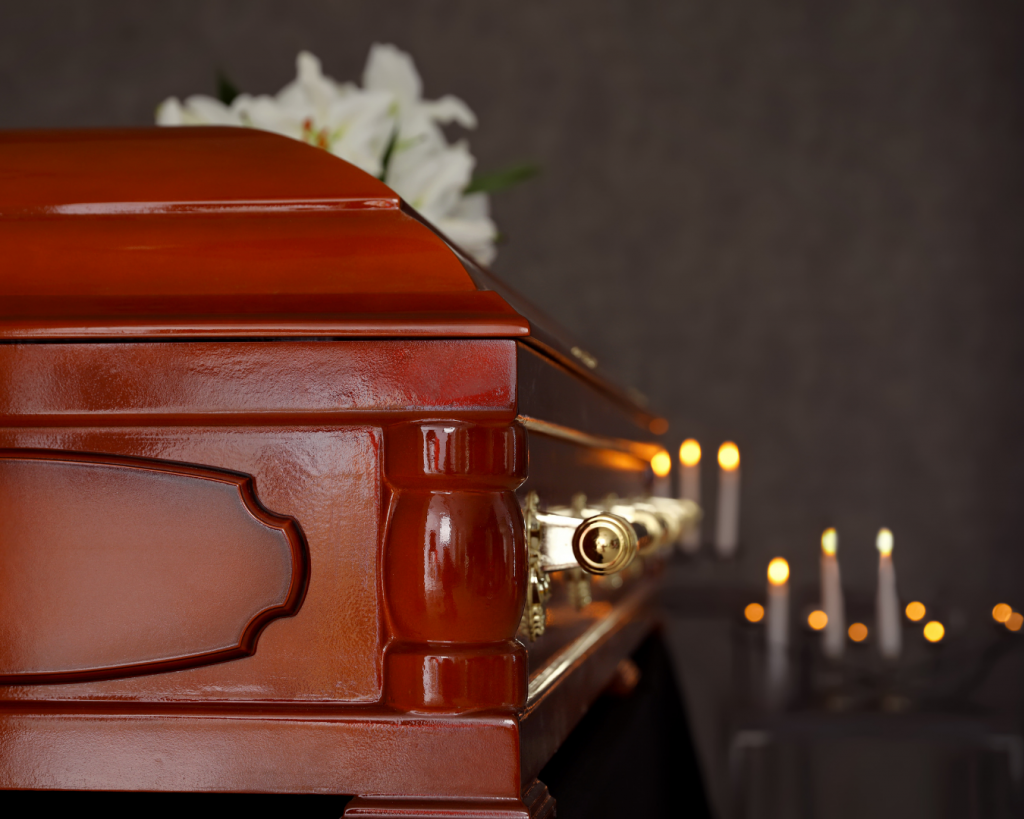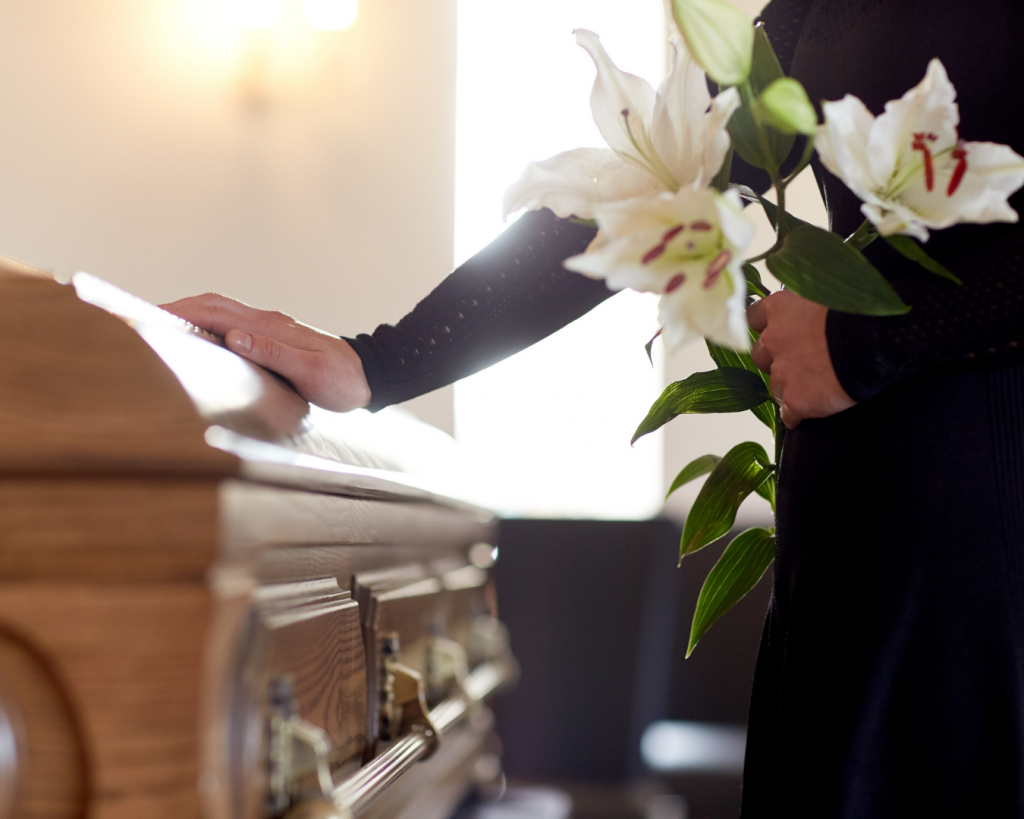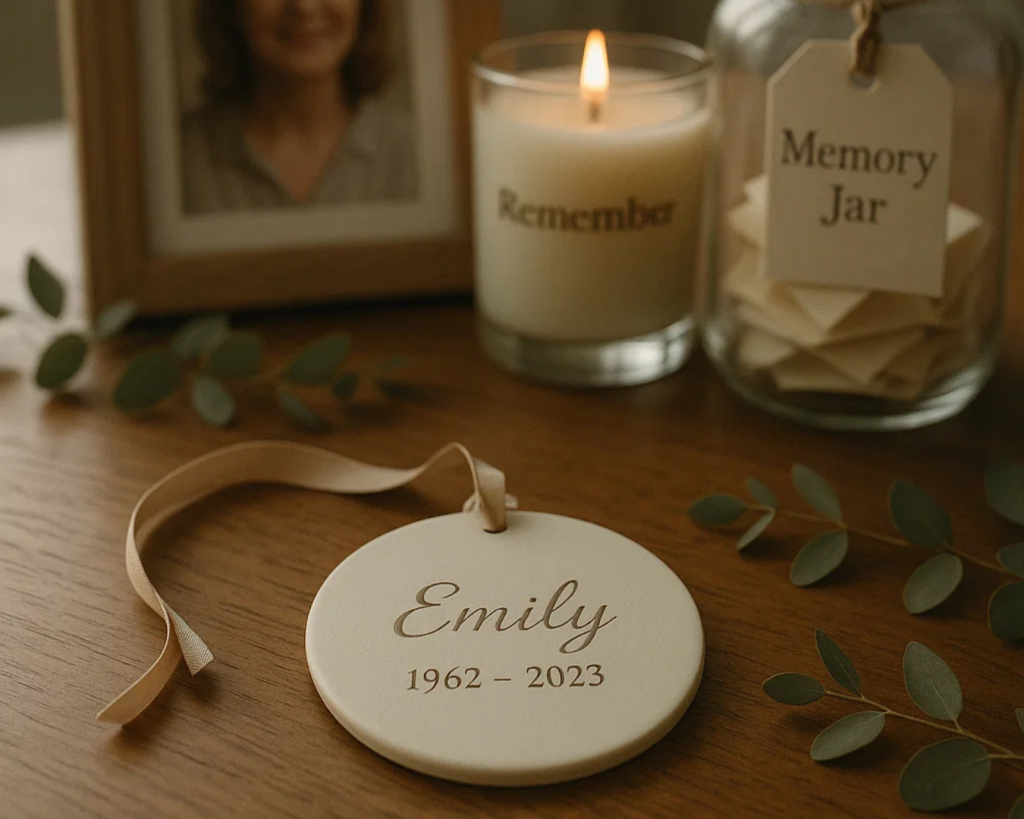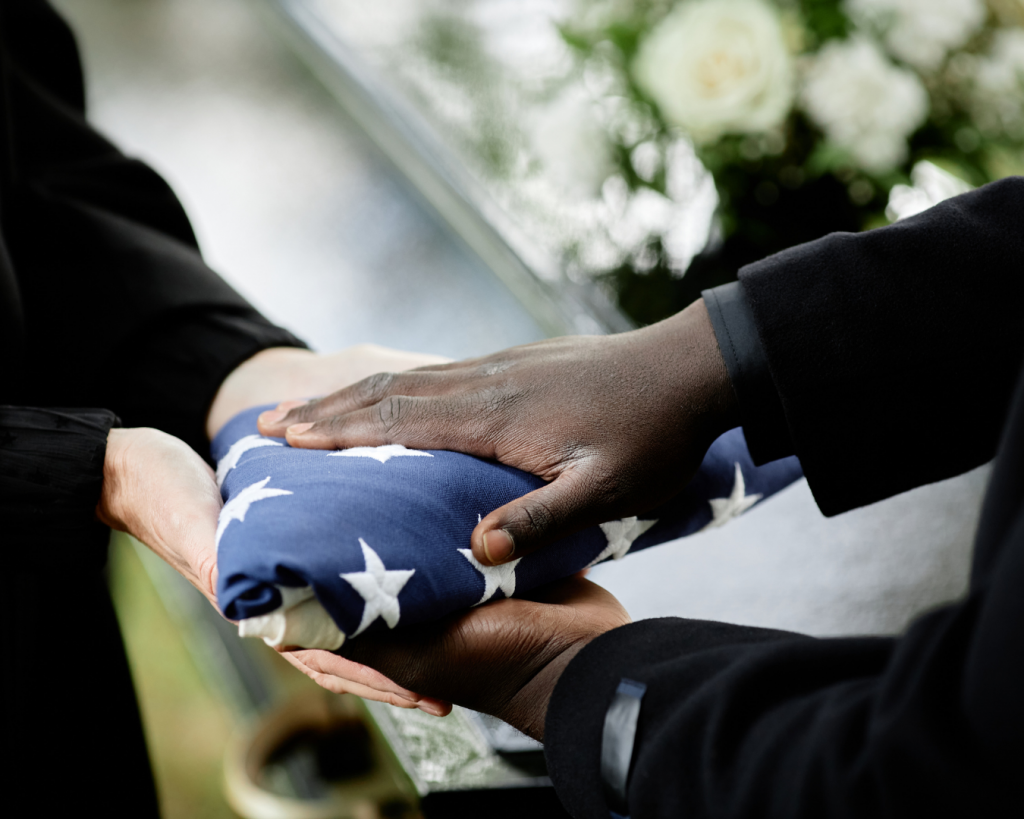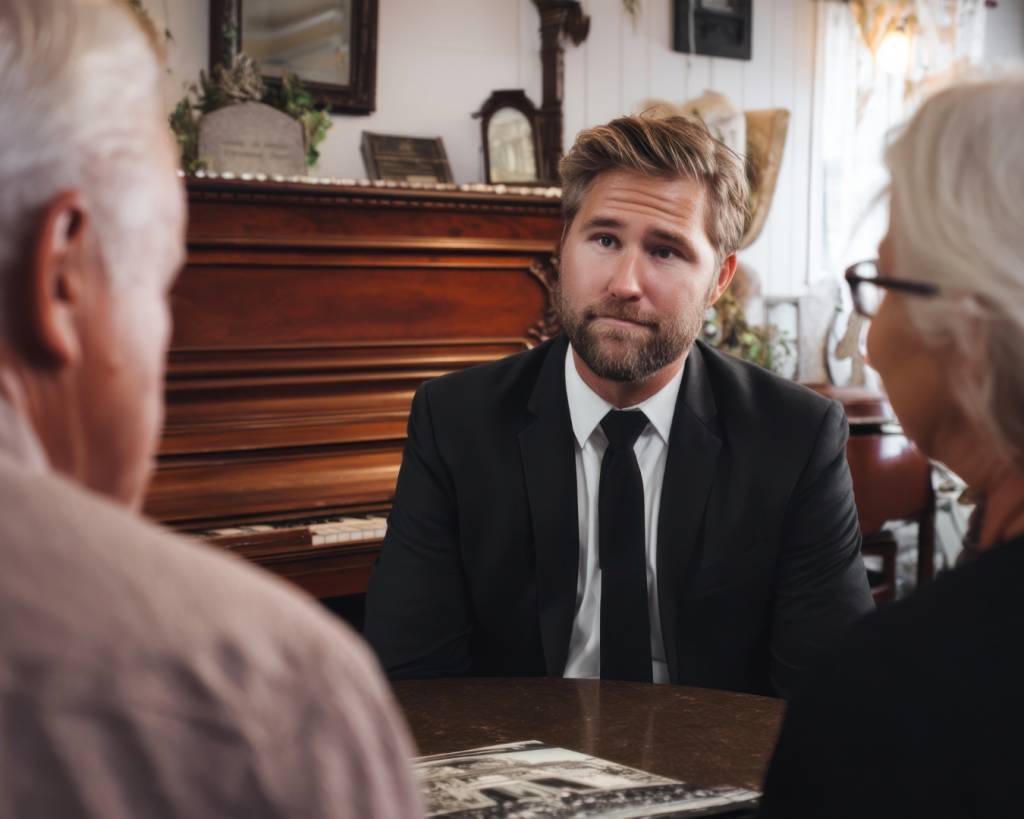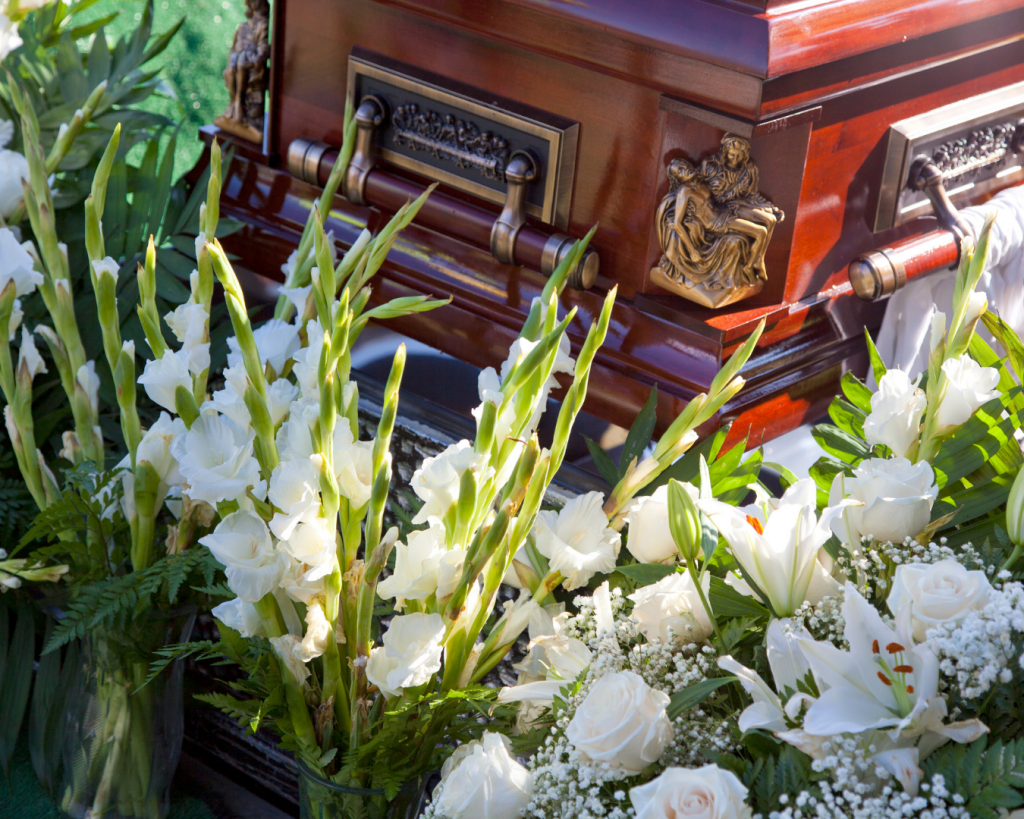Preparing Yourself for a Funeral
By Sosebee Mortuary & Crematory – Anderson, SC Saying goodbye to someone you love is one of life’s most profound challenges. A funeral or viewing can stir a whirlwind of emotions, from deep sadness and anxiety to relief, love, and even gratitude. At Sosebee Mortuary & Crematory, we understand how overwhelming this time can be, and we’re here to support you with care, respect, and compassion every step of the way. Understanding What to Expect One reason funerals and viewings feel so stressful is uncertainty. Knowing what typically happens can help you feel more grounded and prepared. A funeral or viewing may include a time to pay respects, say final goodbyes, offer comfort to family, and reflect on memories of your loved one. Some services include a viewing of the body, while others are more symbolic or celebratory of life. These decisions are personal and vary widely by family and culture. Give Yourself Permission to Feel Grief isn’t structured, predictable, or polite; it arrives in waves. It’s okay to cry, feel numb, laugh at a memory, or sit quietly in a chair. There’s no right or wrong way to experience your emotions during a funeral or viewing. In fact, expressing your feelings can be an important part of the healing process. Remember: you don’t have to force strength or hide emotions to be “respectful.” This moment is as much for those who remain as it is for honoring the person who has passed. Decide What’s Right for You Not everyone feels comfortable with every tradition, and that’s okay. Attending the viewing: Some people want the chance to say goodbye in person. If you are nervous about seeing the body, that’s completely normal. You can choose how close you wish to be and how long you stay. It’s perfectly acceptable to simply be present in the room without standing at the casket. Skipping certain parts: There’s no obligation to participate fully in every ritual. If you’re uncomfortable, you can step outside, sit with someone you trust, or return later for a quieter moment. The most meaningful actions are the ones that feel authentic to you. Lean on Loved Ones Grief shared is grief softened. Being surrounded by trusted friends or family can provide comfort when emotions feel too heavy to carry alone. Don’t hesitate to let others know how you’re feeling; even a whispered “I’m scared” or “I need a moment” can build connection and support. Prepare Your Mind in Simple Ways Here are a few gentle practices to help ease anxiety before the service: Take a few deep breaths. Slowing your breath can calm your nervous system and help you stay present. Talk about your loved one. Sharing a memory with someone can make the experience feel less daunting and more meaningful. Set small intentions. Instead of thinking, “I have to get through this,” try something softer like, “I will honor, by being here in whatever way feels right.” What to Remember Most Funerals and viewings aren’t performances or tests. They are spaces for love, memory, and connection. Whether you speak at the service, offer a hug, or simply take a quiet moment by the casket, your presence honors both your loved one and your own journey through grief. At Sosebee Mortuary & Crematory, we’re here to guide you through every detail, logistical and emotional, with dignity, […]
Understanding the Funeral Process
Losing a loved one is one of life’s most difficult experiences, and planning a funeral can feel overwhelming. Understanding the funeral process ahead of time can help ease some of the stress, allowing families to focus on honoring their loved one and finding comfort in each other. Initial Contact and Arrangements The funeral process begins with reaching out to a funeral home. At this stage: A funeral director guides you through immediate decisions, such as transferring the deceased and care of the body. Families can begin to select the type of service, whether a traditional funeral, memorial service, or direct cremation. The funeral director will discuss legal requirements, paperwork, and any special requests or wishes. This initial step is about support, clarity, and guidance during a difficult time. Choosing the Type of Service Funeral services can be customized to reflect the life and personality of your loved one. Common options include: Traditional Funeral Service: Typically includes visitation or viewing, a ceremony, and burial. Memorial Service: Focuses on celebrating the person’s life and can occur with or without the body present. Cremation Service: Can be combined with either a traditional or memorial service, with options for keepsake urns and memorialization. Funeral directors can help families personalize services, from readings and music to special rituals and tribute videos. Preparing for the Ceremony Once the type of service is chosen, preparation begins: Selecting a casket or urn Choosing flowers, music, and readings Coordinating with clergy, celebrants, or speakers Finalizing guest arrangements and invitations Proper planning ensures the service is meaningful, smooth, and reflective of your loved one’s life. The Day of the Funeral or Memorial On the day of the service, the funeral home provides support with logistics and coordination: Greeting guests and assisting with seating Handling transportation of the deceased if necessary Guiding the family through the ceremony and any post-service events, such as graveside services or receptions This allows families to focus on grieving and honoring their loved one, without worrying about the details. Post-Service Considerations After the service, there are additional steps families may take: Grief support and resources offered by funeral homes Memorialization options, such as headstones, plaques, or keepsakes Handling final paperwork, including death certificates and estate notifications Funeral directors are there to guide families through these next steps, helping make the process as seamless as possible. While every funeral process is unique, understanding the key steps, from initial arrangements to post-service considerations, can help families navigate this emotional time with confidence and care. At Sosebee Mortuary & Crematory, our team is committed to providing compassionate guidance, personalized services, and support through every stage of the funeral process. Need help planning or understanding your options? Contact us today, and our caring professionals will guide you every step of the way.
Create Meaningful Memorial Ornaments and Keepsakes
Honoring a life well-lived often extends beyond the funeral service itself. Keepsakes, ornaments, and personalized memorial items offer families a tangible way to stay connected to those they miss. At Sosebee Mortuary and Crematory, we believe every life is unique. Because of this, each farewell deserves to reflect that uniqueness in a meaningful and personal way. Why Keepsakes Matter A lasting connection:Memorial ornaments and keepsakes act as daily reminders of a loved one’s life. These small, thoughtful items can carry love, memories, and comfort. They offer a gentle connection during moments of reflection. A personalized tribute:Custom keepsakes can capture the personality, interests, and passions of the person being honored. As a result, families often find that these items make the tribute feel more personal and heartfelt. Comfort and healing:Having something tangible to hold or see can help support the healing process. A photo, bookmark, candle, or ornament can create a quiet moment of remembrance. These small rituals often bring comfort long after the service ends. Ideas for Memorial Ornaments and Keepsakes Custom Ornaments and Decorations Personalized ornaments can be displayed on a Christmas tree, in a memory corner, or anywhere in the home. For example, an ornament that reflects a loved one’s hobby or milestones can serve as a tender tribute. Photo Booklets or Memory Albums A keepsake album can help families preserve cherished moments. Collect photos from childhood, celebrations, or meaningful events. This album becomes a gentle way to reflect on a life and share memories with future generations. Memory Cards, Tribute Bookmarks, or Stationery Simple items like bookmarks or small cards can offer comfort throughout the year. A favorite quote, a photograph, or a message can provide a moment of remembrance each time it is seen or used. Memory Jars or Writing Stations Families and friends can write down special memories, stories, or messages and place them in a jar or memory box. Over time, this collection becomes a treasured keepsake filled with shared love. Personalized Candles, Lanterns, or Plantable Memorials Candles often symbolize hope and remembrance. In addition, lanterns or plantable seed-paper items can provide a tribute that grows and evolves. These options are especially meaningful for someone who enjoyed nature. How to Choose the Right Keepsake Reflect their passions:Consider the hobbies, interests, and qualities that defined your loved one. For instance, gardeners may be honored with plantable memorials, while readers may inspire customized bookmarks. Keep it simple and heartfelt:A keepsake does not need to be elaborate. Sometimes the simplest item, such as a handwritten note or a favorite photo, carries the most emotion. Include friends and family:Memories are often shared, so inviting others to contribute can make the keepsake even more meaningful. This also creates a tribute that reflects the impact your loved one had on many lives. Think long-term:Choose materials that will last. Albums, etched ornaments, high-quality prints, and digital memory boards are all great options. These choices help the keepsake stay meaningful for years. How Sosebee Mortuary Can Help At Sosebee Mortuary and Crematory, we understand that every life is unique. We also know that every goodbye deserves care, compassion, and attention to detail. […]
How Military Honors Are Conducted at Funerals
Honoring a veteran’s life is a solemn and meaningful responsibility. At Sosebee Mortuary & Crematory in Anderson, SC, we recognize the profound importance of the military honors ceremony, and we are committed to helping you arrange a tribute that reflects both service and respect. Understanding Military Funeral Honors Military honors are a formal recognition of a veteran’s service to the nation. These ceremonies are not only a tribute, they assure that every detail of the veteran’s final farewell meets the dignity their service deserves. Who Qualifies for Honors Veterans who served honorably in one of the U.S. Armed Forces and were discharged under conditions other than dishonorable are generally eligible for military funeral honors. At Sosebee Mortuary & Crematory, our team can help you verify eligibility and coordinate with the appropriate military branch so that all entitled benefits and honors are arranged seamlessly. What to Expect During the Ceremony A typical military honors ceremony involves several key elements: Honor Guard Presentation: Uniformed service members representing the veteran’s branch of the military stand vigil and participate in the honors. “Taps” Played: A bugler (or recorded version) plays “Taps,” the classic tune that signals the end of the day, symbolically the end of the veteran’s duty. Flag Presentation: The American flag is carefully folded into a triangular shape and presented to the next-of-kin, usually with words such as: “On behalf of the President of the United States, the United States Armed Forces, and a grateful nation…” Rifle Salute (if applicable): In certain circumstances, a three-volley rifle salute may be rendered, following military tradition. How We Support Families At Sosebee Mortuary & Crematory, we handle each step of the coordination required for a military honors service, liaising with the branch of service, scheduling the honors personnel, and integrating the ceremony into the funeral or memorial service in a respectful and dignified manner. We also assist with displaying medals, uniforms, or other military artifacts as part of your loved one’s tribute. Why These Honors Matter For many families, the ceremony offers a sense of closure and recognition, an acknowledgment that their loved one’s service mattered and is remembered. It underscores gratitude, pride, and respect, while providing a meaningful farewell for the veteran and their family. If you are planning a service for a veteran and wish to include military honors, please reach out to our team at Sosebee Mortuary & Crematory. We are here to guide you through the process with compassion and professionalism. Contact us today to learn more about how we can tailor a ceremony that honors a life of service with the dignity it deserves.
Understanding South Carolina Burial & Cremation Laws
Planning end-of-life arrangements can be stressful for families, and understanding the legal requirements in South Carolina can help make the process smoother. Knowing your options for cremation, burial, and the handling of remains ensures that your loved ones’ wishes are respected and that all procedures follow state regulations. Cremation in South Carolina Cremation is a common choice for many families, but South Carolina law has specific rules that must be followed. The process requires proper authorization, either from the deceased through a signed document before death or from the next of kin after death. Cremation cannot occur until at least 24 hours have passed, and funeral homes must have all required documentation, including the death certificate and the cremation authorization form. Once cremated, remains can be buried, placed in a niche or columbarium, scattered on private property with permission, or handled according to local or cemetery rules. If ashes are unclaimed, South Carolina law allows funeral homes or crematories to dispose of them after 60 days. Additionally, safety is important; pacemakers and other potentially hazardous devices must be removed before cremation to prevent accidents. Burial Options and Regulations South Carolina also allows burial on private property, though local zoning and health regulations may apply. Cemeteries often have their own rules regarding grave liners, monuments, and maintenance, and a Burial-Removal-Transit permit is required to transport the body legally. Families may also choose to handle a “home funeral” or direct burial themselves, provided they follow all legal requirements. Embalming is not always required, especially if no public viewing is planned, but families should confirm local and cemetery requirements before making final arrangements. Planning Ahead for Peace of Mind Planning ahead is key to ensuring that burial or cremation wishes are followed correctly. Families should keep clear documentation of any burial plans, including maps for private land burials, and communicate final wishes with loved ones to avoid confusion or disputes. Working with licensed funeral homes and crematories helps ensure that all procedures comply with South Carolina law, making the process less stressful during a difficult time. Understanding South Carolina’s burial and cremation laws allows families to navigate end-of-life decisions confidently. By knowing the rules, planning ahead, and working with licensed professionals, families can ensure that final arrangements are handled respectfully, legally, and in accordance with their loved one’s wishes. Being informed today helps prevent stress and confusion during one of life’s most challenging moments. At Sosebee, we’re here to guide you through every step of the process. Whether you’re planning ahead or need immediate assistance, our experienced team can help you navigate South Carolina’s burial and cremation laws with confidence. Contact us today to learn more or schedule a consultation. Planning end-of-life arrangements in South Carolina? Learn about cremation and burial laws, required documents, and how to ensure your loved one’s wishes are honored.
How Technology Is Changing How We Remember Loved Ones
In the past, friends and family who couldn’t attend a funeral had no way to participate. Today, online memorial pages and livestreamed services allow people from all over the world to be part of the remembrance. Families can upload photos, share videos, and leave personal messages that remain online for years to come. We’ve seen families create beautiful tributes filled with pictures spanning decades, from wedding photos to family vacations. These collections allow grandchildren and even future generations to connect with the stories of someone they may have never met in person. QR Codes on Memorials: Bringing Memories to Life One of the most fascinating innovations is the use of QR codes on headstones or memorial plaques. By scanning the code with a smartphone, visitors can be taken to a personalized website that includes photos, videos, or even recorded stories. Imagine visiting your grandmother’s grave years from now and being able to watch a video of her telling her favorite childhood memory or see her wedding photo in full color. This technology adds an interactive element to remembrance, blending tradition with innovation. A Story of Connection Through Technology A family we recently read about lost their father, a lifelong musician. To honor him, they created an online memorial site that featured recordings of him playing guitar throughout his life. Relatives across the country who couldn’t travel to the service were able to listen to his music, leave stories of how his songs touched their lives, and even upload their own videos of singing along with him at past family gatherings. What began as a tool to include distant relatives quickly turned into a digital legacy, a living archive of his music and the joy it brought to others. Technology, in this case, didn’t replace tradition. It enriched it. Social Media and Everyday Remembrance Platforms like Facebook have also become spaces of remembrance. Memorialized accounts allow friends to post memories on birthdays, anniversaries, and holidays. For many, this provides comfort, a way to continue sharing stories and ensuring their loved one’s name is never forgotten. Preserving Legacies for the Future At Sosebee Mortuary and Crematory, we understand that every family grieves differently. Some find comfort in traditional services, while others embrace digital tools to extend their reach. The important thing is that your loved one’s story is told, remembered, and cherished. Technology gives us new ways to do that: Digital guestbooks that remain online long after the service Video recordings of services for those who can’t attend Online memorials that preserve stories and photos for generations Final Thoughts The way we remember may be changing, but the reason we remember stays the same: love, connection, and honoring a life well-lived. Technology is not about replacing tradition; it’s about giving families more ways to share and celebrate the lives of those who meant so much. At Sosebee Mortuary and Crematory, located in Anderson, SC, we are here to help you create meaningful tributes, whether through traditional services, modern technology, or a combination of both.
Managing a Loved One’s Final Affairs in Anderson, SC
Losing a loved one is never easy. On top of the emotional weight, you may also be faced with the responsibility of managing their final affairs. If you’ve been named the executor of an estate in Anderson, SC, you may be wondering where to start, what steps to take, and how to navigate the process while honoring your loved one’s wishes. At Sosebee Mortuary & Crematory, we’ve helped countless Anderson, SC, families through this process, and we understand the unique challenges it can bring. This guide will walk you through the key steps of being an executor so you can move forward with clarity and confidence. Understand Your Role as Executor An executor is the person named in a will to carry out the deceased’s final wishes. Your responsibilities may include: Locating and reviewing the will Notifying family members, beneficiaries, and institutions Managing property and personal assets Paying outstanding debts and taxes Distributing assets according to the will If there is no will, South Carolina’s intestacy laws will guide the process, and the court may appoint a personal representative. Secure the Death Certificate In Anderson, SC, you’ll need certified copies of the death certificate to handle legal and financial matters. These can typically be obtained through the funeral home or the Anderson County Probate Court. It’s wise to request multiple copies most banks, insurance companies, and government agencies require originals. Notify Important Parties After a loved one passes, you’ll need to notify key institutions, such as: Social Security Administration Banks and credit unions Insurance providers Credit card companies Utility companies Employer or pension providers This ensures accounts are closed or transferred and prevents identity theft. Locate and Protect Assets As executor, you must safeguard the estate’s property until it is distributed. This includes securing homes, vehicles, and valuable personal items. In Anderson, SC, you may need to change locks, update insurance policies, or arrange for maintenance of real estate during the probate process. Manage the Probate Process Most estates in Anderson, SC, go through probate, a court-supervised process to validate the will and settle debts before distributing assets. The Anderson County Probate Court oversees this process, and timelines can vary depending on the estate’s complexity. Working with a local probate attorney can help ensure everything is handled correctly. Settle Debts and Taxes Before distributing assets, the estate must pay all valid debts and any applicable taxes. This may include: Mortgage or rent payments Utility bills Credit card balances Medical expenses State and federal taxes Distribute Assets and Close the Estate Once debts are settled and the court grants approval, you can distribute assets to beneficiaries according to the will. Keep detailed records of every transaction—this protects you legally and ensures transparency. Finding Support in Anderson, SC Being an executor is both an honor and a responsibility. You are carrying out your loved one’s final wishes while managing practical and legal matters. It can be overwhelming, but you don’t have to go through it alone. At Sosebee Mortuary & Crematory in Anderson, SC, we are here to guide you with compassion, clarity, and care. From helping you obtain the death certificate […]
What Families Should Know When Planning Summer Funerals
Summer is a season often associated with sunshine, family gatherings, and time spent outdoors, but for families facing the loss of a loved one, it can also bring unexpected challenges when it comes to funeral planning. At Sosebee Mortuary & Crematory, we understand how emotional and overwhelming this time can be, and we’re here to provide compassionate guidance every step of the way. If you’re navigating funeral arrangements during the summer months in Anderson, SC, here are a few important things to keep in mind. Heat and Outdoor Services Summer’s high temperatures and humidity can impact outdoor services, especially graveside ceremonies. While many families appreciate the peaceful atmosphere of an outdoor setting, it’s important to consider: The comfort and safety of guests, especially elderly attendees The timing of the service (mornings or early evenings are usually cooler.) Providing shade, seating, water, or fans for attendees Our team can help coordinate these details to ensure your loved one is honored with dignity while keeping your family and guests comfortable. Venue and Scheduling Considerations Summer is a busy season, not just for vacations and travel, but also for weddings, graduations, and other events. Churches, florists, and reception venues may have limited availability. If you’re planning a memorial service or celebration of life, it’s helpful to work with a funeral home that has strong community ties and can assist in securing locations, even on short notice. At Sosebee Mortuary, we maintain close relationships with local clergy, florists, and venues throughout Anderson County to help ensure a smooth and meaningful service, no matter the season. Travel and Family Logistics Summer often means family members are traveling or have pre-scheduled obligations. While this can sometimes complicate planning, it also means loved ones may already be in town—or able to travel more easily than during the school year. If you’re considering delayed services or a separate memorial gathering later in the season, we can help you coordinate every detail and ensure your loved one is remembered in the way that best reflects their life and your family’s needs. Personalized Summer Touches Summer funerals can also provide unique opportunities to personalize a service: Seasonal flowers like lilies, sunflowers, and hydrangeas Outdoor photo displays or memory tables Favorite summer music or meaningful readings A celebration of life picnic or reception in a local park Our team can help incorporate warm-weather elements that reflect your loved one’s personality, hobbies, and favorite memories. Compassionate Support, Year-Round Whether you’re planning an immediate service or preplanning for peace of mind, Sosebee Mortuary is honored to serve families in Anderson, SC, and the surrounding areas. We’re here to answer your questions, guide your decisions, and support you with professionalism and care, no matter the season. Need Help Planning a Summer Funeral? Reach out to Sosebee Mortuary today. We’re here to help you honor your loved one with grace, compassion, and the personal attention your family deserves.
Meaningful Memorial Ideas for Father’s Day
Father’s Day can feel different after losing your dad. It’s no longer about picking out a card or planning a cookout. It becomes a day of remembering, honoring, and holding onto the moments that mattered most. At Sosebee Mortuary & Crematory, located in Anderson, SC, we understand how important it is to make space for that kind of remembrance and to find comfort in the small things that keep his memory alive. Here are some meaningful, practical ways to honor your father this Father’s Day. Visit His Gravesite or Final Resting Place Bring flowers, say a prayer, or simply sit in quiet reflection. Whether you stay a few minutes or a few hours, visiting his resting place can offer a sense of connection and peace. Make His Favorite Meal Cook something he loved, even if it was just a simple burger on the grill or his go-to breakfast. Food can bring back strong memories and help you feel close to him. Look Through Old Photos Spend some time with photo albums, framed pictures, or saved videos. Looking back on the way he lived and loved can spark smiles, laughter, and maybe a few tears, all of which are part of remembering. Write Him a Letter Put your thoughts into words. Tell him what’s been going on, what you miss, or what you wish you could say. You can keep the letter, place it by his photo, or even bring it to his gravesite. Light a Candle in His Memory Lighting a candle at home is a quiet way to mark the day. It’s a small ritual that can be done morning or evening, as a moment to reflect and remember. Talk About Him Share a story. Bring up something funny he did. Say his name. Keeping those conversations going helps make sure his memory stays active, not just in your heart, but in your daily life. Go Somewhere He Loved Take a drive to a place that mattered to him, maybe it’s the lake, the mountains, the old neighborhood, or even just the porch. Being there can bring back pieces of the past in the best way. A Quiet Kind of Honor There’s no right or wrong way to spend Father’s Day after loss. Doing something small and meaningful can make a big difference, and even if it’s quiet, it’s still full of love. At Sosebee Mortuary & Crematory, we’re here to support you through every season of grief and remembrance. If you ever need help planning a memorial or accessing resources, reach out anytime.
Planning a Veteran’s Funeral: What Families Should Know
As Memorial Day draws near, many families in Anderson, South Carolina, reflect on the sacrifices made by veterans in their lives. If you’re preparing to plan a funeral for a loved one who served in the military, it’s important to understand the special considerations and benefits available. Confirming Eligibility for Military Funeral Benefits First, confirming eligibility for military funeral benefits is essential. Veterans who served honorably, meaning discharged under conditions other than dishonorable, typically qualify for Military Funeral Honors. To verify eligibility, you’ll need service records such as the DD Form 214 or other official documentation. If you don’t have these papers, your funeral director or the Veterans Affairs office can assist in obtaining them. Understanding Military Funeral Honors Military Funeral Honors, provided at no cost, include traditions like the playing of “Taps,” a flag-folding ceremony, and the presentation of the U.S. flag to the next of kin. These honors are a meaningful tribute to your loved one’s service and are coordinated through your funeral home. Choosing Burial Options in South Carolina Burial options vary and may include national, state, or private cemeteries. For families in South Carolina, the M.J. “Dolly” Cooper Veterans Cemetery in Anderson offers dignified resting places for eligible veterans and their spouses. Veterans buried in national cemeteries receive a government-furnished headstone, perpetual care of the gravesite, and a presidential memorial certificate. It’s important to communicate your burial preferences early so your funeral director can arrange these benefits smoothly. Requesting the U.S. Flag and Headstone The U.S. flag that drapes the casket or accompanies an urn is provided by the VA free of charge. After the service, this flag is presented to the family as a keepsake, symbolizing honor and gratitude. You can also request a government-issued headstone or marker as a lasting tribute. Why Choose Sosebee Mortuary At Sosebee Mortuary, a veteran-owned business proudly serving Anderson and the surrounding communities, we understand the weight of these moments and are committed to helping families through every step of the process. Our team provides compassionate care and ensures all military protocols and benefits are honored with respect. Honoring a Veteran’s Life with Respect Honoring a veteran’s life is a profound responsibility, and with the right guidance, your family can give your loved one the respectful farewell they deserve. If you have questions or need assistance with veteran funeral planning, don’t hesitate to reach out to us at Sosebee Mortuary. We’re here to support you.

